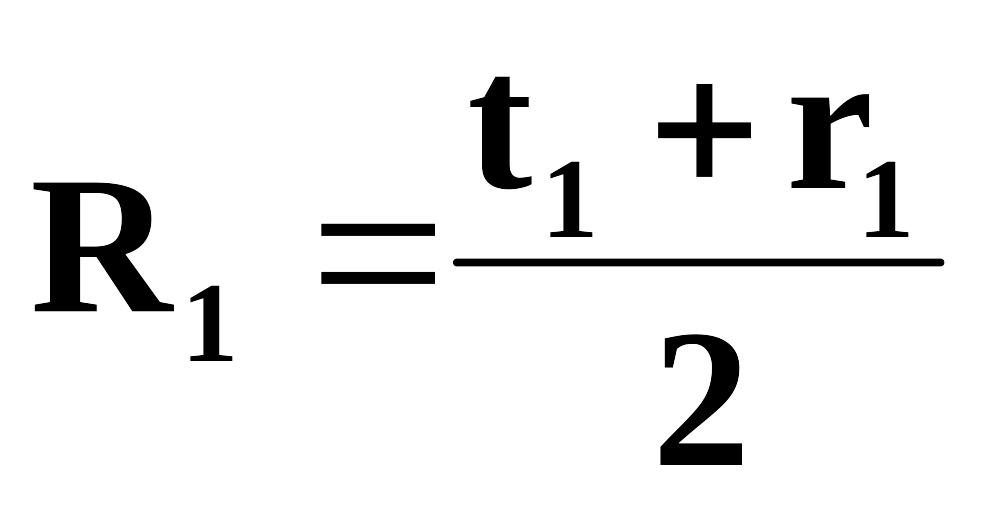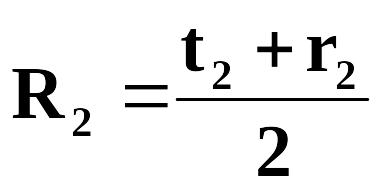
- •Educational and methodical complex
- •Almaty, 2012 contents
- •Work programme
- •Almaty, 2012
- •1. General information
- •2. Program
- •2.1 Introduction
- •2.2 The purpose of discipline
- •2.3 Objectives of training (Problems of training)
- •2.4 Learning Outcomes
- •2.7 Thematic plans
- •2.8 Training and teaching methods.
- •Alphanumeric point-rating evaluation of discipline
- •2.10 Literature
- •Syllabus
- •Almaty, 2012
- •1. General information
- •2.1 Introduction
- •2.2 The purpose of discipline
- •2.3 Objectives of training (Problems of training)
- •2.4 Learning Outcomes
- •2.8 Thematic plans
- •2.9 Training and teaching methods.
- •Alphanumeric point-rating evaluation of discipline
- •2.11 Literature
- •Pharmaceutical faculty guidelines for practical training
- •Almaty, 2012
- •Pharmaceutical faculty guidelines for self-study student (sss)
- •Almaty, 2012
2.7 Thematic plans
Thematic plan of a practical training
№ |
Subjects of a practical training
|
Duration (in hours) |
1. |
Conceptual and terminological apparatus for the organization and economics of pharmacy. |
2 |
2. |
Terms used in industry standards and regulatory documents. |
2 |
3. |
The terms used in the organization of the distribution network of the pharmaceutical market. The terms used in the theory and practice of pharmaceutical management and marketing |
2 |
|
Total: 6 hours |
|
The thematic plan of self-study student under the guidance of a teacher (SSUT):
№ |
Subjects of SSUT
|
Duration (in hours) |
1. |
The terms used in the treatment of drugs, medical devices and medical equipment.
|
2 |
2. |
Landmark control. |
1 |
|
Total: 3 hours |
|
Thematic plan of self-study student (SSS):
№ |
Subjects of SSS
|
Duration (in hours) |
1. |
The terms used in the treatment of drugs, medical devices and medical equipment. |
10 |
|
Total: 10 hours |
|
2.8 Training and teaching methods.
Practical training: a joint discussion with the teacher of theoretical material, work with educational literature, performing tasks (written responses to questions, filling out tables, etc.), testing, oral questioning.
Self-study student under the guidance of a teacher (SSUT): a panel discussion with illustrative tables, presentation slide.
Self-study student (SSS): working with the literature, Internet resources, educational and scientific materials in electronic media, preparation of presentations and thematic essays.
2.9 Methods of assessment of students knowledge and skills: writing assignments on options for control, test control.
The number of evaluations of competence of students of 2nd course on elective discipline "Pharmaceutical Terminology"
• 60% - 9 practical trainings - knowledge; • 15% - 2 practical trainings - practical skills • 10% - 2 practical trainings - communication skills • 5% - 1 practical training - legal competence • 1 SSS - self-cultivation
Scorecard knowledge of students of 2nd course on elective discipline
"Pharmaceutical Terminology"
The maximum score of 100 a) an oral interview - the maximum 80 points - Correct and complete answer when asked verbally and discussion threads - 74-80 points - Correct but incomplete answer during oral questioning and discussion threads - 60-73 points - An incomplete answer to some inaccuracies - 52-59 points - An incomplete response, reflecting the main points topic - 50-51 points - No answer - 0 points b) the execution of tasks in test form - maximum 20 points - 86 - 100% - 20 points - 75 - 85% - 15 points - 60 - 74% - 7 points - 50 - 59% - 3 points - Less than 50% - 0 points
Scorecard practical skills of students of of 2nd course on elective discipline
"Pharmaceutical Terminology"
An oral interview - the maximum 100 points - Correct and complete answer when asked verbally and discussion threads - 90-100 points - Correct but incomplete answer during oral questioning and discussion threads - 75-89 points - An incomplete answer to some inaccuracies - 50-74 points - An incomplete response, reflecting the main points topic - 0-49 points - No answer - 0 points
Scorecard communicative competence of students of 2nd course on elective discipline
"Pharmaceutical Terminology"
The maximum score of 100
№ |
Skills |
Point |
1. |
Effective self-presentation |
10 |
2. |
An open posture, nonverbal demonstration friendly attitude |
10 |
3. |
Compliance with the pace of the conversation, attentive perception |
10 |
4. |
Confidence |
10 |
5. |
Conscious perception |
10 |
6. |
The ability to see the problem from the perspective of the interlocutor |
10 |
7. |
Forming methods of persuasion |
10 |
8. |
Keeping a group discussion, debate |
10 |
9. |
Understanding and operating performance of pharmaceutical organizations |
10 |
10. |
Feedback |
10 |
|
Total: |
100 |
Scorecard legal skills of students of 2nd course on elective discipline
"Pharmaceutical Terminology"
An oral interview - the maximum 100 points - Correct and complete answer when asked verbally and discussion threads - 90-100 points - Correct but incomplete answer during oral questioning and discussion threads - 75-89 points - An incomplete answer to some inaccuracies - 50-74 points - An incomplete response, reflecting the main points topic - 0-49 points - No answer - 0 points
Evaluation SSS (maximum 100 points) of students of 2nd course on elective discipline
"Pharmaceutical Terminology"
№ |
Criteria |
Point |
1. |
Full implementation of all relevant claim forms SSS |
90-100 |
2. |
Committed minor errors, inaccurate quest |
75-89 |
3. |
Committed significant errors, incomplete quest |
50-74 |
4. |
Committed an error of principle, not doing the job, ineligible SSS |
0-49 |
SSS ratio in percentage of students of 2nd course on elective discipline
"Pharmaceutical Terminology"
№ |
Name |
in% |
1. |
Presentation |
20 |
2. |
Essay |
20 |
3. |
Abstract |
25 |
4. |
Tables |
5 |
5. |
Review of the literature |
10 |
6. |
Tests – 10 |
20 |
|
Total: |
100 |
Final control - examination taking into account results of the current and landmark control.
Final control: test examination in the testing center taking into account results of the current control.
The technology of monitoring students' knowledge
I = R x 0,6 + E x 0.4, where I - the final score R-rating score for admission E - evaluation of the final control (examination of the discipline) Rating is 60% of I, 40% of the exam on I. Assessment rating is made up of students and a landmark assessment of the current control. The first rating is calculated using the formula:

, where
t - current control = average score for the practical work (laboratory, workshop) + average for the SSUT + average for the SSS
r - landmark control
Each practice session, SSUT, SSS, landmark control are calculated out of 100 points, which corresponds to 100 percent
The second rating is calculated using the formula:
 ,
where
,
where
t - current control = average score for the practical work (laboratory, workshop) + average for the SSUT + average for the SSS
r - landmark control
Rate of admission to the student's final grade is not less than 60%, so the semester evaluation of the discipline of students is determined by the formula
![]()
The student is admitted to the examination, if it semester score greater than or equal to 30%. In the absence of many landmark controls the admission rating is calculated only on the current estimates. In the case of larger number of landmark controls, calculated the appropriate number of ratings at the end of the semester average rating is calculated.
Technology of the examination and evaluation.
The maximum percentage of total control corresponds 100 %. The examiner puts down marks of total control (E) in the examination sheet, using instruments of measurement of knowledge being trained total control.
The instrument of measurement of total control in the form of testing
The exam is conducted in two phases.
At one stage of the exam test the student is given 50 test items, each task corresponds to 2 points or percent.
№ |
Quality of works |
Assessment range
|
1 |
It is not executed Absence at examination without valid excuse |
0%
|
2 |
Assessment for each right answer |
2% |
|
Total: |
0-100% |
Scorecard practical skills of students of 2nd year on the 2nd stage of the examination
on elective discipline
"Pharmaceutical Terminology"
An oral interview - maximum 100 points - Correct and complete answer when asked verbally and discussion threads - 90-100 points - Correct but incomplete answer during oral questioning and discussion threads - 75-89 points - An incomplete answer to some inaccuracies - 50-74 points - An incomplete response, reflecting the main points topic - 0-49 points - No answer - 0 points
Next, the overall rating based on an examination of the two phases.
The share of an assessment of total control makes no more than 40 % of a total assessment of knowledge of discipline therefore the examination assessment (Э) on discipline is multiplied by factor 0,4: Eх0,4
Further the total assessment is calculated
I= R x 0,6 + E x 0,4
Total control: examination
In a statement put up the final exam score for the discipline in the digital and the alphabetic equivalent according to the score table below.
